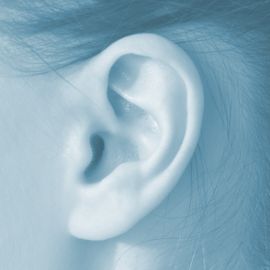Description
Cholesteatomas begin as a build-up of ear wax and skin, which causes either a lump on the eardrum or an eardrum retraction pocket. Over time, the skin collects and eventually causes problems like infection, drainage, and hearing loss. The skin may take a long time to accumulate and can spread to the area behind the eardrum (the middle ear space) or to the bone behind the ear, called the mastoid bone.
Symptoms
- Hearing loss
- Ear drainage
- Recurrent ear infections
- Sensation of ear fullness
- Dizziness
- Facial muscle weakness
- Ear ache
Treatments
Cholesteatoma can be managed in a variety of ways, but definitive removal of the skin or cyst typically requires surgical intervention. Before surgery, your ENT specialist may need to carefully clean your ear and prescribe medications to help stop the drainage. These medications (oral antibiotics) may be taken by mouth, applied directly to the ear (topical antibiotics), or both. It is advised that you keep the ear dry while treating these infections.
